The irresponsible remarks of our responsible persons
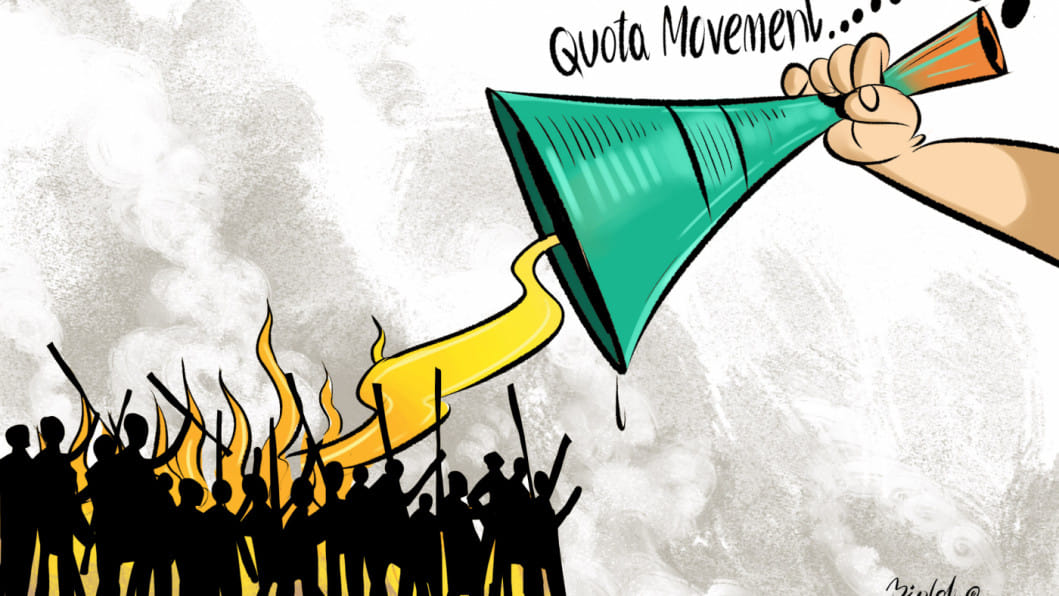
The events of last week have jolted the nation. What started off with students of public universities peacefully protesting for the reformation of the quota system in public jobs, ended up with hundreds of people getting killed, thousands severely injured, and immeasurable damage being done to public properties.
When public university students first started taking to the streets, they repeated time and again that they had only one demand: for the executive branch of the government to reform the quota system—which it could have done in 2018 but refused to do—which even the High Court said it could do if it felt it was necessary. The students further said that as soon as the government agreed to their one demand, they would withdraw from the streets.
How did we get from there, to where we are now, with nearly five days of internet shutdown and a nationwide curfew?
Lest we forget, the issue of Razakars came up during a press conference held by the prime minister. That night, the students took to the streets and chanted various slogans. Among them, one slogan we found objectionable. But there were other slogans which indicated the students' clear disdain for Razakars.
Nevertheless, the next day, the Awami League general secretary, amidst a situation that was seemingly turning tense, said that Chhatra League would give these protesters a fitting reply. The first question that should automatically be raised is, why Chhatra League? Where does it say in any of the documents pertaining to the functioning of our state that Chhatra League has any role to play in such matters? Why could the responsible minister himself not give a direct reply to the protesters in regards to their demands?
The answer to why he referred to the BCL became evident the next day, when the student wing of the ruling party unleashed a shocking stream of violence upon the students, resulting in over 300 injuries, mostly to the protesters. It was that irresponsible comment that first gave rise to the violence.
Before BCL took to the streets to once again quell peaceful protests using force—which had become the go-to tactic of this government as evident from previous instances of mass protests—the home minister told the media that law enforcers would take a hardline approach if the student protesters stepped out of line. But when the BCL unleashed its rampage, we saw law enforcers again stand by and watch idly. The students themselves called out law enforcement personnel for not stepping in to protect them.
Where was the home minister then? Is he not responsible for protecting the country's law and order? If so, when BCL members came out in droves with weapons in their hands, was the country's law and order not threatened? When they attacked the students, was the country's laws not broken?
Instead of admitting what was there for all to see, that the police did not protect the students nor oppose BCL's rampage, he hinted that the violence that took place was a result of disagreements among students. It was that failure to take responsibility to protect the students that led to a larger student movement the next day, when private university students also got involved. And the demand that the students added at that point—to investigate who was responsible for the attacks on them by BCL cadres, and to hold them to account—was also extremely reasonable.
Why was that so difficult? Why, instead, did the BCL take to the streets again the next day armed with weapons, to try and foil the demonstrations of the students? And why were law enforcers either unresponsive or joining in on the side of the BCL?
Law enforcement agencies were only properly deployed once the students managed to drive BCL back. And once deployed, the students alleged and there is evidence to suggest that they continued the attempt to silence the protesters using unnecessary force. And that's when things really started to take an ugly turn, leading to the deaths of six people on July 16, including the unarmed Abu Sayed.
In recent statements, several ministers said that while the students were waging a peaceful movement, BNP- and Jamaat-led forces took advantage of the tense situation and used violence to wage a parallel movement. Are the responsible ministers uninformed of how tensions initially escalated? Does the responsible ministers not know that the violence was started by the BCL, which gave rise to the volatile situation in which, undoubtedly, outside forces tried to add further fuel. Where were they when the "peaceful student protesters" that they themselves described, were being attacked?
Why did none of the responsible persons in the higher echelons of the government not condemn the attacks on students by BCL and law enforcers? When the coordinators of the quota-reform protests alleged on July 16 that state-sponsored attacks were being carried out against them across the country, why did none of them come forward to talk to them and provide them with protection?
On the next day, when the students had already been beaten and battered, and clearly afraid for their own security, why did the government decide to forcibly throw them out of their university campuses, without the least bit of consideration as to how they were going to get home safely? It was only after they were made to vacate their campuses, and the loss of more lives and thousands of injuries, that violence erupted across the country in all direction, bringing the total death toll to more than 170. But why did we have to get to such a point in the first place?
Are the irresponsible comments made by various responsible officials of our government, not in any way to blame for this? Despite various ministers now promising to carry out investigations into the incidents of violence, which they are blaming solely on the BNP and Jamaat, no mention of BCL's role, or the irresponsible comments that were made from within their own ranks, have been mentioned by any of them. Given the extremities that the entire nation has gone through in the last few days, is that the responsible thing to do?
The damage to public property that has been done, to businesses, the psychological toll this entire ordeal has placed on the old and the young, and most tragically, the huge loss of lives—mostly of students—and the terrible injuries that have been caused to people, whose lives have been changed forever as a result, deserved a more prudent reaction from the government. Because, what unfolded over the past week, did not just happen in a vacuum.
History and ordinary people in general will remember very well what happened over the last week or so. For the government to now try and avoid any responsibility for the tragedies that unfolded, and act with the same sense of irresponsibility that, at the very least, helped create the environment for these tragedies to occur, will not lead to the people or the nation getting any closure. And that, unfortunately, may only delay this horrific chapter of our history from ending.
Eresh Omar Jamal is deputy head of editorial at The Daily Star. His Twitter handle is: @EreshOmarJamal
Views expressed in this article are the author's own.
Follow The Daily Star Opinion on Facebook for the latest opinions, commentaries and analyses by experts and professionals. To contribute your article or letter to The Daily Star Opinion, see our guidelines for submission.

 For all latest news, follow The Daily Star's Google News channel.
For all latest news, follow The Daily Star's Google News channel. 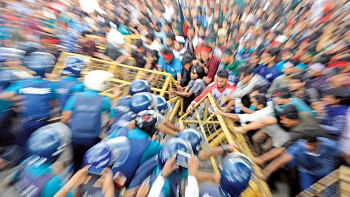
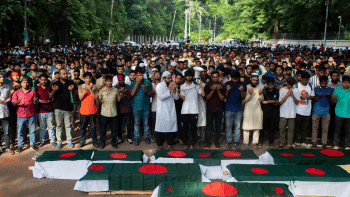
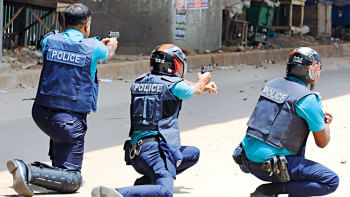


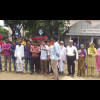
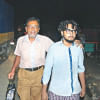
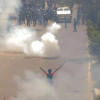

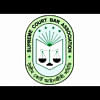


Comments